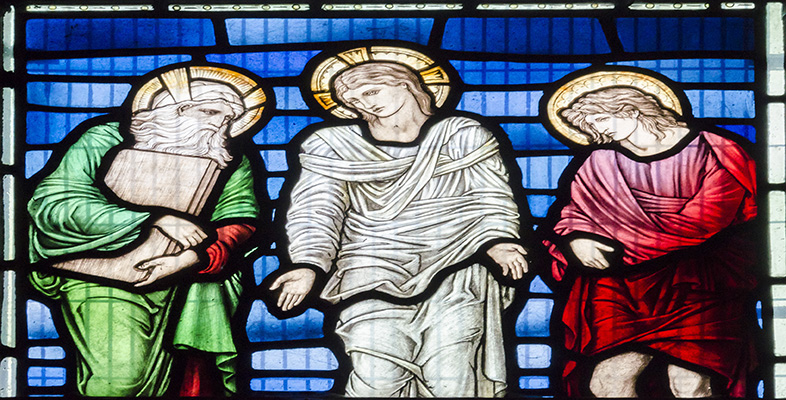So who’s right: Ada, Bert or Carl?
Does any of this sound familiar? If you have ever listened to or taken part in an argument about whether God exists, it probably does. Lots of people (like Ada and Bert) advance arguments for and against God’s existence, and many of them are clearly intelligent and reasonable people. But still we don’t seem able to settle the arguments about God one way or the other. That leads many other intelligent and reasonable people to a conclusion like Carl’s: there isn’t any conclusive argument either for or against God’s existence, and those who think they have found one only think that because they want to believe it.
So who’s right: Ada, Bert or Carl? You might well think that there is something to be said for all three views. Ada (you might say) has a point, because there are some things in the world that don’t seem to make sense unless there is a God. Bert has a point for the opposite reason – because there are some things that don’t seem to make sense if there is a God. Meanwhile Carl, too, must be right to point out that neither Ada nor Bert is being completely fair on the other, and that, sometimes at least, people are theists – or atheists – because that’s what they want to believe.
On the other hand, you might say, both Ada and Bert go too far in talking about proof. There may be evidence for or against God’s existence, but proof is a very strong word. If you have proof for a belief, that means the belief must be true, and surely (you might say) that is going too far with such a difficult question as God’s existence. And Carl – you might add – goes too far as well. Just because neither Ada nor Bert can prove their beliefs, it doesn’t follow that they don’t have any evidence at all for them.
You might have different reactions from these, of course. Another possible reaction is to say that Ada is right to believe in God, but Carl is right to say that belief in God doesn’t depend on reasons. Belief in God is good for us – it makes our lives go better than they do without belief – so we should believe in God even though we don’t have very good evidence that he exists. This kind of view has been suggested by the seventeenth- and nineteenth-century philosophers Blaise Pascal (1623–1662) and William James (1842–1910). Their view is often called fideism (from Latin fides, ‘faith’).
Conversely, you might think that belief in God is bad for us, and conclude that we have good reason not to believe in God, whether or not we have good evidence that he doesn’t exist. This kind of view you will find in the writings of Friedrich Nietzsche (1844–1900) and the twentieth-century philosopher Bertrand Russell (1872–1970).
Some people even think that there can’t be any real faith in God unless there is no evidence for God’s existence. Faith is essentially trust, and there can’t be trust unless there is something you don’t know: I can’t really trust that my daughter will recover from her illness, if I already know that she has recovered. Likewise with faith in God: we couldn’t have real faith in God if we knew that God existed. This is the strongly fideist view that the nineteenth-century philosopher Søren Kierkegaard (1813–1855) takes in Concluding Unscientific Postscript (1846).
Fideism has its critics, too. One possible problem for a fideism like Kierkegaard’s, James’s or Pascal’s comes from the question ‘Can you choose to believe?’ Fideists think that we should adopt a belief in God without much or any evidence that it is true. But we might wonder whether it is even possible to adopt a belief just because you choose to, rather than because there is good evidence for that belief.
Try it for yourself. Have a go at making yourself believe this:
Custard is really spaghetti
Can you do it? Well, you can certainly make yourself have the thought ‘Custard is really spaghetti’. But having a thought is not the same thing as believing it. It seems impossible to make yourself believe ‘Custard is really spaghetti’, just by trying to believe it. So it’s hard to see how you will be able to make yourself believe that God exists, unless you think that there is good evidence that God exists.
Another problem for Kierkegaard’s kind of fideism is the worry that he muddles up two separate senses of the word ‘faith’. What do we mean by ‘faith’? We might mean (at least) two very different things. In one sense, ‘faith’ can mean belief in the propositions of religion (e.g. ‘God exists’, ‘God is loving’, ‘God created the world’, and so on). In the other sense, ‘faith’ means personal trust, of the kind that you have in friends or parents or a husband or wife. Maybe Kierkegaard is right about one kind of faith, faith as personal trust, but wrong about the other kind, faith as propositional belief. And maybe faith as personal trust can involve what Kierkegaard calls a ‘leap of faith’ – without that meaning that there can’t be evidence for or against faith as propositional belief.
